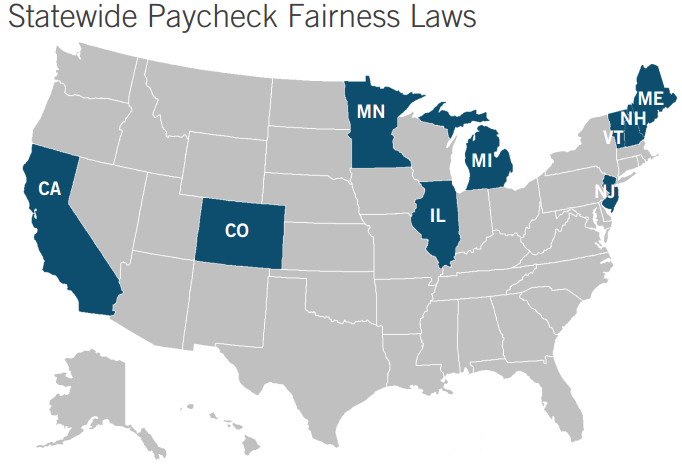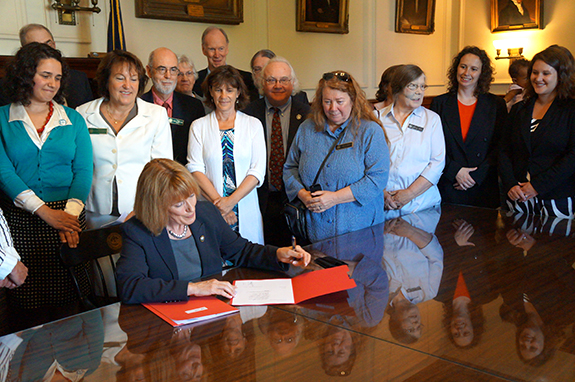If you’re a woman in New Hampshire, things just got a little easier for you. Calling the Paycheck Fairness Act “the most significant piece of legislation for women in New Hampshire in over a decade,” the Granite State’s Governor Maggie Hassan held a ceremonial signing of the bill on July 22.
What is the Paycheck Fairness Act and how does it help address the wage gap for women? This legislation protects women when (not if) they experience pay discrimination. Currently, due to pay secrecy, many women never find out they are being paid less than their male counterparts. Many private firms (one in three, according to one recent national study) admit to actively discouraging or prohibiting employees from discussing their pay with other employees.
To address the wage gap, the Paycheck Fairness Act:
- Increases transparency in wages by prohibiting employers from retaliating against workers who discuss compensation and
- Requires employers to justify differences in pay based on factors not related to race or gender
Just how bad is the wage gap? More than fifty years after the passage of the Equal Pay Act, for every $1.00 earned by the average white male, the average woman earns only 77 cents-and the wage gap is even worse for women of color. Black women earn 64 cents and Latina women earn 54 cents for every dollar earned by the average white male. Women earn less than their male counterparts across all occupations and sectors-even though women earn more college degrees than men and make up almost half of the workforce. Economists have found that while differences such as education or occupation explain part of the wage gap, up to 40% cannot be explained by differences in occupation, industry, union membership, education or experience.
At least part of this ‘unexplained’ wage gap is related to discrimination. Women are often offered lower compensation than men when they are first hired, even if education and experience levels are similar, and receive smaller and less frequent promotions. Studies have also shown that employers are less likely to hire women with children, regardless of education and experience.
 Even though Paycheck Fairness legislation has repeatedly stalled at the federal level, (most recently in April of this year,) states around the country are standing up for women. Nine states around the country-states like Minnesota, Colorado, and of course, our progressive neighbor to the south, California- all have Paycheck Fairness Acts on the books. New Hampshire is the newest state to join the club.
Even though Paycheck Fairness legislation has repeatedly stalled at the federal level, (most recently in April of this year,) states around the country are standing up for women. Nine states around the country-states like Minnesota, Colorado, and of course, our progressive neighbor to the south, California- all have Paycheck Fairness Acts on the books. New Hampshire is the newest state to join the club.
In Washington, a Paycheck Fairness Act is sorely needed for working women and families-and it’s a crucial piece of a broader agenda for women’s economic security. Read more in EOI’s recent publication on Washington State’s Work and Family Agenda.
As New Hampshire’s Governor Hassan boldly stated as she signed the Paycheck Fairness Act into law, “Ensuring that women and men can earn equal pay for an equal day’s work isn’t just an issue of fairness–it’s essential to our economic future.”
By Graduate Intern Sam Hatzenbeler, MPHc
More To Read
September 24, 2024
Oregon and Washington: Different Tax Codes and Very Different Ballot Fights about Taxes this November
Structural differences in Oregon and Washington’s tax codes create the backdrop for very different conversations about taxes and fairness this fall
September 10, 2024
Big Corporations Merge. Patients Pay The Bill
An old story with predictable results.
September 6, 2024
Tax Loopholes for Big Tech Are Costing Washington Families
Subsidies for big corporations in our tax code come at a cost for college students and their families

